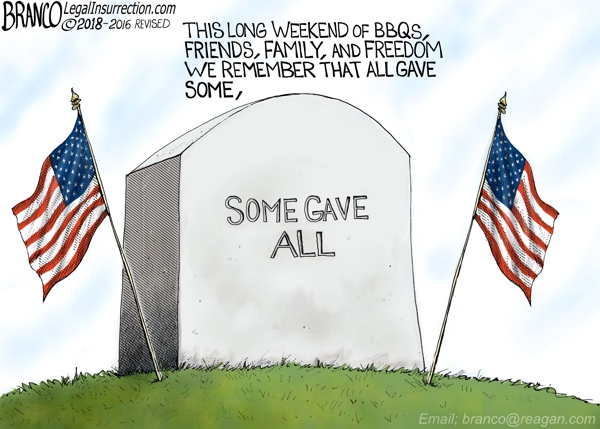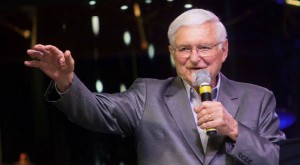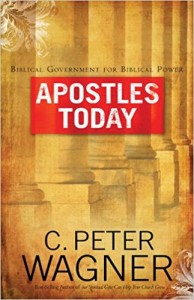By Jon D. Wilke by Monday, August 13, 2012
When it comes to discipleship, churchgoers struggle most with sharing Christ with non-Christians according to a recent study of church-going American Protestants.
The study conducted by LifeWay Research found 80 percent of those who attend church one or more times a month, believe they have a personal responsibility to share their faith, but 61 percent have not told another person about how to become a Christian in the previous six months.
These distressing results came from an extensive discipleship research project focused on measuring spiritual maturity in individuals. Overall, LifeWay Research found eight biblical attributes consistently evident in the lives of maturing believers. Of those eight, “Sharing Christ” has the lowest average score among Protestant church attendees.
Three-quarters of churchgoers say they feel comfortable in their ability to effectively communicate the gospel, while 12 percent say they don’t feel comfortable telling others about their faith.
Despite a vast majority believing it’s their duty to share their faith and having the confidence to do so, 25 percent say they have shared their faith once or twice, and 14 percent have shared three or more times over the last six months.
The survey also asked how many times they have personally, “invited an unchurched person to attend a church service or some other program at your church?” Nearly half (48 percent) of church attendees responded, “zero.” Thirty-three percent of people say they’ve personally invited someone one or two times, and 19 percent say they’ve done so on three or more occasions in the last six months.
“Many times we’ve been told new Christians are most active in sharing their faith,” said Ed Stetzer, president of LifeWay Research.
“In reality people who have been a Christian longer have higher responses for Sharing Christ than newer Christians. While new Christians may find it natural to share their new experience, mature Christians do it intentionally,” said Stetzer.
According to Stetzer, “praying more frequently for the status of people who are not professing Christians is the best indicator of more spiritual maturity in the entire Sharing Christ factor.”
In the study, 21 percent of churchgoers say that outside of church worship services they pray every day for people they know who are not professing Christians. Twenty-six percent say they pray a few times a week. One-fifth (20 percent) say they rarely or never pray for the spiritual status of others.
“If you are going to be intentional about sharing your faith, praying for others is a great way to start. We often acknowledge the importance of prayer in people coming to faith in Christ, but we also found it has an impact on the person praying,” he said.
These findings are part of the largest discipleship study of its kind. Results from each of the eight attributes of spiritual maturity will continue to be released over the coming months.
To help pastors, churches and individuals measure spiritual development, LifeWay Research used the study’s data to develop a questionnaire for believers, called the Transformational Discipleship Assessment (TDA). This online evaluation delivers both individual and group reports on spiritual maturity using the eight factors of biblical discipleship. The TDA also provides helpful and practical suggestions on appropriate next steps for spiritual development.
“The Transformational Discipleship Assessment not only captures the literal action of verbally sharing one’s faith, but also measures how ready and willing a person is to do so. While most believers accept personal responsibility to share their belief in Jesus Christ with non-Christians, far fewer are seeking these opportunities,” Stetzer explained.
To learn more about the transformational discipleship research visit LifeWayResearch.com. The TDA is available at tda.lifeway.com.
Footnotes
Methodology: The survey of 2,930 American adults who attend a Protestant church once a month or more was conducted October 14-22, 2011. A demographically balanced online panel was used for the interviewing. Respondents could respond in English, Spanish or French. The sample provides 95 percent confidence that the sampling error does not exceed +1.8 percent. Margins of error are higher in subgroups.
**************************
Why Don’t More Christians Share Their Faith?
by Jack Wellman
Christians share their faith with others, don’t they? Believe it or not, this happens less frequently than you might think.

Jesus’ Commands
Perhaps the one thing that most disciples struggle with after they’re saved is sharing their faith with an unsaved person. They might love to serve in the church, they might regularly attend worship services, and they might even teach a class, but when it comes to sharing their faith with family or friends, it appears that they might be ashamed of the gospel. Obviously, the Apostle Paul wasn’t shy about telling others about Christ, writing, “For I am not ashamed of the gospel, for it is the power of God for salvation to everyone who believes, to the Jew first and also to the Greek” (Rom 1:16). Jesus told the disciples to go into all the world to make disciples, teaching them the same things that Jesus taught them (Matt 28:19-20), but not only if they felt like it…they were to go, despite how they felt about it. The things that they were to teach others are found in the four gospels today, and in other letters written by the apostles in the New Testament. We may not be able to go into all the world, but we can go next door, or to the person standing in line behind us, or by any other means God may divinely place us. Why don’t more obey this imperative command from our Supreme Commander? There are reasons, but none of them very good. Go into all the world to make disciples.
Fear of Man
The Bible teaches that the fear of man is a stumbling block proves to be a snare (Prov 29:25). It prevents us from doing what we know God wants us to do. This self-inflicted fear muffles our witness, mutes our testimony, slost o many who know us might not even know we’re believers. We naturally tend to do things that will make people like us, rather than do what we know God wants us to do, and one thing is to present the gospel to people. The Apostle Paul had no choice but to preach the Word, writing, “if I preach the gospel, that gives me no ground for boasting. For necessity is laid upon me. Woe to me if I do not preach the gospel” (1 Cor 9:6). Paul asks a few rhetorical questions like, “How then will they call on him in whom they have not believed? And how are they to believe in him of whom they have never heard? And how are they to hear without someone preaching? And how are they to preach unless they are sent? As it is written, “How beautiful are the feet of those who preach the good news” (Rom 10:14-15)! God opens doors that no man can (Rev 3:8), and the church knew that, gathering “together and reported all that God had done through them and how he had opened a door of faith to the Gentiles. And they stayed there a long time with the disciples” (Acts 14:27-28). There is never any mention of any believer being silent about their faith; only rejoicing at how God was saving many hundreds and later, thousands. Being fearful about sharing their faith never occurred to them. They were more fearful of neglecting God’s commands than being afraid of rejection, scorn, and destroyed relationships.
Current Trend
Jon D. Wilke, in writing about churchgoers silence about Christ, said that 80% of churchgoers believe they are commanded to share their faith but only 60% of them (3/4ths of them) have done it only once over the last six months, and just about half the Christians who responded said that they have never once invited someone to church. [1] Does the fact that we don’t witness for Christ connect to the fact that only 21% of Christians pray for someone who is lost. Barna Research questioned believers and 73% are sure they’re commanded to be witnesses, yet less than half do…and less than half that group (48%) has never witnessed at all! [2] Since Barna has been tracking data on evangelism (in 1966), there has been a steady drop in the number of Christians witnessing, and this given the fact that there are more Christians today than in 1966. [2] One interesting fact was that the poorer the Christian was, the more likely they were to be evangelizing. I’m not sure why that is, but those who are richer tended to witness less. Perhaps it’s due to having more financial comfort and security than the poor, and the poor can more easily identify with those who are struggling.
Knowing the Gospel
You can’t share what you don’t know, so you must know the gospel well enough to share the gospel without a Bible. You might not be able to carry a Bible with you everywhere you go or have it at every moment you need it, so memorize key Bible verses and you’ll always have them with you. Maybe this is what’s keeping some from sharing their faith more, or it might be they’re living in sin and feel like hypocrites by witnessing for Christ. But it could be they don’t know what to say. A couple of verses destroy the false idea that most unsaved people have. Most believe they’ve done more good than bad, and that should be able to get them into heaven, however, Romans 3:10-12 puts a stop to that thinking. It says that none are good; not even, meaning there are no exceptions (Rom 3:10-12). Every one of us have fallen infinitely short of God’s glory (Rom 3:23), and the wages of eternal death will be paid out at Christ’s coming or after we die (Heb 9:27), “For the wages of sin is death, but the gift of God is eternal life in Christ Jesus our Lord” (Rom 6:23). Jesus offers every one of us, one of two choices: “Whoever believes in the Son has eternal life; whoever does not obey the Son shall not see life, but the wrath of God remains on him” (John 3:36), so people must know the gospel well enough to know that being a self-proclaimed “good person” is not good enough on Judgment Day (Matt 7:21-23). They must be able to tell others that only through Christ (Acts 4:12) can we have the righteousness that is required to enter the kingdom and escape the wrath of God (2 Cor 5:21).
Conclusion
It’s easier to witness when there are two of you. One can be praying while the other is speaking. Today, there are really good Bible tracts that you can hand out to people, leave in public places, and put in the places where people will be, but I believe it’s most difficult of all to witness to family because you stand to lose the most in relationships, however, let me remind you (and me!) that Jesus said the cost is high, and showing that said, “If anyone comes to me and does not hate his own father and mother and wife and children and brothers and sisters, yes, and even his own life, he cannot be my disciple” (Luke 14:26). If we stop for a moment and look at people…look intently upon our lost family and friends…, and now, think about their eternal state without Christ, and that their eternity is forever fixed and will never, ever change. We might have more compassion and courage to tell them about Christ. When the founder of the Salvation Army, William Booth, wrapped up a class on evangelism, he said if these men could spend 5 minutes in hell, they wouldn’t need this training. They’d likely be jumping out of their chairs and running as to rescue someone from a burning house…which, in a way, it is. Like we once were, a stick snatched out of the fire, twice burnt, once saved; but only by the grace of God (Zech3:2). The stick couldn’t have saved itself. It needed someone else’s help. God doesn’t need us to save anyone, but He is pleased to use us as a means to do so. Who went to that trouble for you? Aren’t you glad they stepped out of their comfort zone?
1. Wilke, Jon D. Churchgoers Believe in Sharing Faith, Most Never Do. Lifeway.com. http://www.lifeway.com/Article/research-survey-sharing-christ-2012 (Accessed Dec 20, 2017).
2. Kinnaman, David. Is Evangelism Going out of Style? Barna.com/research https://www.barna.com/research/is-evangelism-going-out-of-style/ (Accessed Dec 20, 2017).
Here is some related reading for you: How to Evangelize Door to Door
Resource – Scripture quotations are from The Holy Bible, English Standard Version®
Read more: https://www.whatchristianswanttoknow.com/why-dont-more-christians-share-their-faith/#ixzz5Fu25HwUG
**************************
Sharing Faith, Most Never Do
by Jon D. Wilke by Monday, August 13, 2012
When it comes to discipleship, churchgoers struggle most with sharing Christ with non-Christians according to a recent study of church-going American Protestants.
The study conducted by LifeWay Research found 80 percent of those who attend church one or more times a month, believe they have a personal responsibility to share their faith, but 61 percent have not told another person about how to become a Christian in the previous six months.
These distressing results came from an extensive discipleship research project focused on measuring spiritual maturity in individuals. Overall, LifeWay Research found eight biblical attributes consistently evident in the lives of maturing believers. Of those eight, “Sharing Christ” has the lowest average score among Protestant church attendees.
Three-quarters of churchgoers say they feel comfortable in their ability to effectively communicate the gospel, while 12 percent say they don’t feel comfortable telling others about their faith.
Despite a vast majority believing it’s their duty to share their faith and having the confidence to do so, 25 percent say they have shared their faith once or twice, and 14 percent have shared three or more times over the last six months.
The survey also asked how many times they have personally, “invited an unchurched person to attend a church service or some other program at your church?” Nearly half (48 percent) of church attendees responded, “zero.” Thirty-three percent of people say they’ve personally invited someone one or two times, and 19 percent say they’ve done so on three or more occasions in the last six months.
“Many times we’ve been told new Christians are most active in sharing their faith,” said Ed Stetzer, president of LifeWay Research.
“In reality people who have been a Christian longer have higher responses for Sharing Christ than newer Christians. While new Christians may find it natural to share their new experience, mature Christians do it intentionally,” said Stetzer.
According to Stetzer, “praying more frequently for the status of people who are not professing Christians is the best indicator of more spiritual maturity in the entire Sharing Christ factor.”
In the study, 21 percent of churchgoers say that outside of church worship services they pray every day for people they know who are not professing Christians. Twenty-six percent say they pray a few times a week. One-fifth (20 percent) say they rarely or never pray for the spiritual status of others.
“If you are going to be intentional about sharing your faith, praying for others is a great way to start. We often acknowledge the importance of prayer in people coming to faith in Christ, but we also found it has an impact on the person praying,” he said.
These findings are part of the largest discipleship study of its kind. Results from each of the eight attributes of spiritual maturity will continue to be released over the coming months.
To help pastors, churches and individuals measure spiritual development, LifeWay Research used the study’s data to develop a questionnaire for believers, called the Transformational Discipleship Assessment (TDA). This online evaluation delivers both individual and group reports on spiritual maturity using the eight factors of biblical discipleship. The TDA also provides helpful and practical suggestions on appropriate next steps for spiritual development.
“The Transformational Discipleship Assessment not only captures the literal action of verbally sharing one’s faith, but also measures how ready and willing a person is to do so. While most believers accept personal responsibility to share their belief in Jesus Christ with non-Christians, far fewer are seeking these opportunities.”
To learn more about the transformational discipleship research visit LifeWayResearch.com. The TDA is available at tda.lifeway.com.
Footnotes
Methodology: The survey of 2,930 American adults who attend a Protestant church once a month or more was conducted October 14-22, 2011. A demographically balanced online panel was used for the interviewing. Respondents could respond in English, Spanish or French. The sample provides 95 percent confidence that the sampling error does not exceed +1.8 percent. Margins of error are higher in subgroups.


 Constitutional Convention on June 28, 1787, stated:
Constitutional Convention on June 28, 1787, stated: of Fasting, February 21, 1786, to pray for the new government:
of Fasting, February 21, 1786, to pray for the new government: religion, this world would be something not fit to be mentioned in polite company — I mean hell.”
religion, this world would be something not fit to be mentioned in polite company — I mean hell.” system of morals.” He celebrated the Bible because “when duly read and meditated on, it is of all books in the world, that which contributes most to making men good, wise, and happy.”
system of morals.” He celebrated the Bible because “when duly read and meditated on, it is of all books in the world, that which contributes most to making men good, wise, and happy.” parents’ Baptist faith. The toll of the Civil War led Lincoln to undergo a profound spiritual journey; before the war, Lincoln had imagined Providence, the power sustaining and guiding human destiny, as a remote and mechanistic force. When he was president, however, Providence began to emerge in his mind as an active and more personal God, a mysterious presence whose purpose eluded human understanding. Lincoln received the casualty lists and toured military hospitals. In February 1862, his son Willie died of typhoid fever.
parents’ Baptist faith. The toll of the Civil War led Lincoln to undergo a profound spiritual journey; before the war, Lincoln had imagined Providence, the power sustaining and guiding human destiny, as a remote and mechanistic force. When he was president, however, Providence began to emerge in his mind as an active and more personal God, a mysterious presence whose purpose eluded human understanding. Lincoln received the casualty lists and toured military hospitals. In February 1862, his son Willie died of typhoid fever. “preacher president.” He converted to Christianity at a camp meeting in 1850. The next day he was baptized in the Disciples of Christ Church. “Today I was buried with Christ in baptism and arose to walk in the newness of life,” he wrote.
“preacher president.” He converted to Christianity at a camp meeting in 1850. The next day he was baptized in the Disciples of Christ Church. “Today I was buried with Christ in baptism and arose to walk in the newness of life,” he wrote. Cleveland, our 22nd and 24th president, attended Sunday school and multiple services in his father’s church each Sunday. He would remain a member of the Presbyterian Church his entire life.
Cleveland, our 22nd and 24th president, attended Sunday school and multiple services in his father’s church each Sunday. He would remain a member of the Presbyterian Church his entire life. the First Baptist Church in Grandview, Mo. As president, Truman made frequent references to religion and Christianity in his public speeches. On April 16, 1945, in a statement before a joint session of Congress, Truman asked God for guidance, saying, “I ask only to be a good and faithful servant of my Lord and my people.” Truman repeatedly referred to America as a “Christian nation” and declared that it “was established by men who believed in God. You will see that our Founding Fathers believed that God created this nation. And I believe it, too.”
the First Baptist Church in Grandview, Mo. As president, Truman made frequent references to religion and Christianity in his public speeches. On April 16, 1945, in a statement before a joint session of Congress, Truman asked God for guidance, saying, “I ask only to be a good and faithful servant of my Lord and my people.” Truman repeatedly referred to America as a “Christian nation” and declared that it “was established by men who believed in God. You will see that our Founding Fathers believed that God created this nation. And I believe it, too.” President, Janio da Silva Quadros, on January 31, 1961:
President, Janio da Silva Quadros, on January 31, 1961: baptized in the Disciples of Christ Church, Reagan did not shy away from encouraging Christianity as president. Early in his presidency, he wrote a letter saying: “My daily prayer is that God will help me to use this position so as to serve Him. Teddy Roosevelt once called the presidency a bully pulpit. I intend to use it to the best of my ability to serve the Lord.”
baptized in the Disciples of Christ Church, Reagan did not shy away from encouraging Christianity as president. Early in his presidency, he wrote a letter saying: “My daily prayer is that God will help me to use this position so as to serve Him. Teddy Roosevelt once called the presidency a bully pulpit. I intend to use it to the best of my ability to serve the Lord.”








